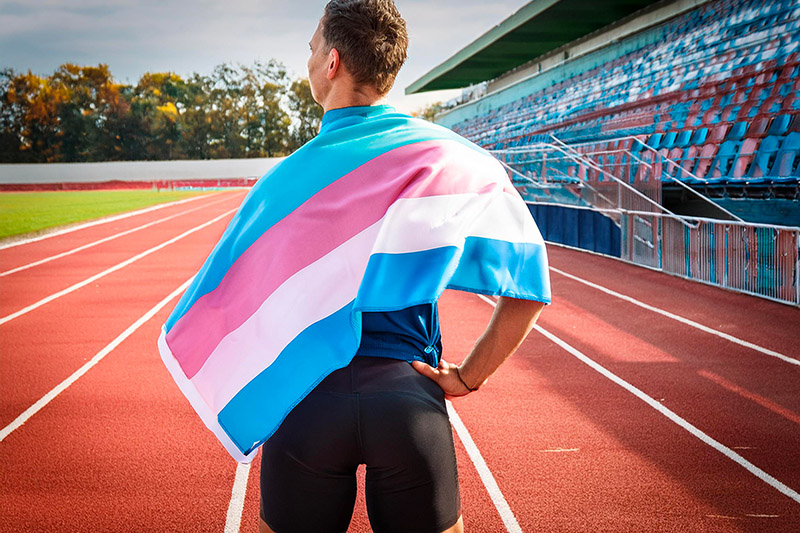Louisiana governor opposes bans on trans athletes and transition-related health care for youth
John Bel Edwards' comments seek to dissuade lawmakers from pushing forward with bills targeting the trans community.

Louisiana Gov. John Bel Edwards (D) won’t support bills that seek to restrict which sports transgender athletes can compete in or seek to block transgender youth from receiving gender-affirming care like puberty blockers or hormones.
In coming out against the bills, Edwards potentially risks angering Republicans who control the State House of Representatives and State Senate, which could prompt them to push forward with the proposed measures.
But his refusal to sign the bills — and amassing the votes that would be required to override any veto he issued — could deter Republicans from testing the governor’s will.
Stating his opposition during a Monday press conference, Edwards told reporters: “I am concerned about emotionally fragile people, and the idea that the weight of the state would be put behind something that to me is unnecessary and discriminatory and very hurtful for those individuals when there’s not a compelling reason to do it.”
Proponents of the measure to ban transgender athletes from competing based on their gender identity argue that the measure, which they describe as “preventative,” is needed to ensure cisgender girls are given equal opportunity to succeed in athletic endeavors.
But they have been unable to cite any examples of transgender athletes in Louisiana taking away titles or championships from cisgender girls, instead employing right-wing talking points about two athletes from Connecticut who have made national headlines in recent years.
“We don’t have a problem in Louisiana today,” Edwards said of the proposed trans athlete ban.
Two other measures that have been introduced are a bill that would require transgender youth to get the written consent of their parents to receive hormones, puberty blockers, and other gender-affirming therapy; and another that would impose criminal penalties on medical providers who offer or prescribe transgender treatments or surgeries, according to The Advocate, a Baton Rouge-based newspaper.
Edwards warned that any legislation seen as attacking the LGBTQ community could potentially bring an “adverse impact to the state,” such as the economic backlash experienced by North Carolina in 2016 when lawmakers there passed a bill restricting which public restroom facilities transgender people could use.
New Orleans is currently scheduled to host the NCAA’s Final Four basketball tournament in 2022, and some opponents — including Edwards — worry the collegiate sports association will relocate the tournament if the state passes any measures targeting transgender individuals, as it previously did with North Carolina over its anti-trans law, and as it is currently doing with Georgia in protest of a law that critics claim seeks to disenfranchise black voters by introducing additional obstacles to casting a vote.
See also: Athletes, coaches call on NCAA to remove championships from states with anti-trans laws
The NCAA recently issued a statement reiterating its long-held position that potential host cities for NCAA sporting events must be able to commit to “providing an environment that is safe, healthy and free of discrimination” for all student-athletes.
GLAAD, the LGBTQ media advocacy organization, condemned bills targeting transgender youth, particularly proposed bans on trans athletes in women’s sports.
“Transgender young people just want to be safe, belong, and live free of discrimination, including from some in their own government,” Serena Sonoma, GLAAD’s communications coordinator and regional media lead for the U.S. South, said in a statement. “There is no evidence that including trans kids harms anyone. States that include trans students have more girls participating in sports than states with bans.
“This bill and similar measures across dozens of states are unnecessary and harmful to all young people,” Sonoma added. “Lawmakers must stop targeting the most vulnerable in their states. They are sending a terrible message that hurts all kids and threatens their states’ economies.”
Read more:
Oklahoma Republican stands by comments that transgender people “have a mental illness”
Support Metro Weekly’s Journalism
These are challenging times for news organizations. And yet it’s crucial we stay active and provide vital resources and information to both our local readers and the world. So won’t you please take a moment and consider supporting Metro Weekly with a membership? For as little as $5 a month, you can help ensure Metro Weekly magazine and MetroWeekly.com remain free, viable resources as we provide the best, most diverse, culturally-resonant LGBTQ coverage in both the D.C. region and around the world. Memberships come with exclusive perks and discounts, your own personal digital delivery of each week’s magazine (and an archive), access to our Member's Lounge when it launches this fall, and exclusive members-only items like Metro Weekly Membership Mugs and Tote Bags! Check out all our membership levels here and please join us today!























You must be logged in to post a comment.